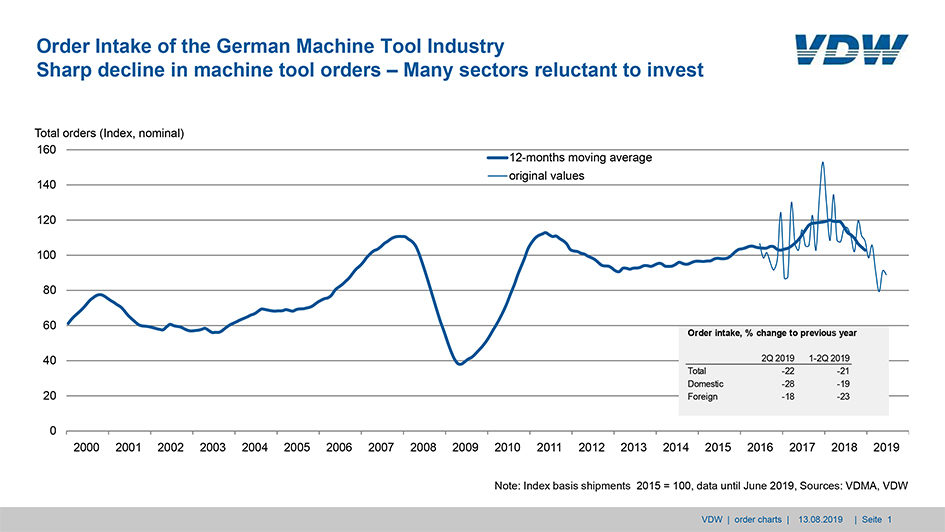Orders received by the German machine tool industry in the second quarter of 2019 were 22 per cent down on the same period last year. Orders from Germany fell by 28 per cent. 18 per cent fewer orders were received from abroad. Orders received fell by 21 per cent in the first half of 2019. Domestic sales were down 19 per cent in this period, with foreign sales 23 per cent lower.

Dr. Wilfried Schäfer, Executive Director of the VDW (German Machine Tool Builders’ Association), Frankfurt am Main
“In the second quarter, orders are once again more than twenty per cent down on last year’s strong figures,” said Dr. Wilfried Schäfer, Executive Director of VDW (Verein Deutscher Werkzeugmaschinenfabriken – German Machine Tool Builders’ Association), Frankfurt am Main, commenting on the result. “The base effect can no longer disguise the global decline in investment in mechanical and plant engineering,” Schäfer continued.
The machine tool industry is not immune to the factors that are creating so much turbulence in the global economy as a whole and that are currently the subject of much discussion: “We are in the same boat as the other major international suppliers. Orders for machine tools have collapsed worldwide. Many countries are now having to pay the price for the almost daily international disputes being picked by politicians,” says Schäfer.
The machine tool sector is a pure supplier of capital goods and equipment to industry, and as such is exposed to pressure from weak demand in the major customer industries, the engineering sector and the automotive industry. The latter is additionally undergoing a protracted period of uncertainty as a result of the tentative transformation process towards new drive technologies and is cutting back investment accordingly.
Within the triad of suppliers, the Europeans are still performing most strongly. Orders from eurozone countries “only” fell by 5 per cent over the first six months, while those from non-eurozone countries were down by 28 per cent.







